Networking at gaming events and conferences can seem daunting, especially if you have never done it before. We’ve compiled everything you need to know before your next event, including special pro tips from our CEO, Rob, an overview of what makes the gaming industry different from other businesses, and the types of people you’re likely to meet.
This article is part of our blog series on gaming conventions. For even more content, be sure to head over here and check out the other blogs!
Types of Gaming Conventions/Conferences and Visitors
Not all gaming industry gatherings are the same. Here’s an overview of the different types of events and the people you can expect to meet.
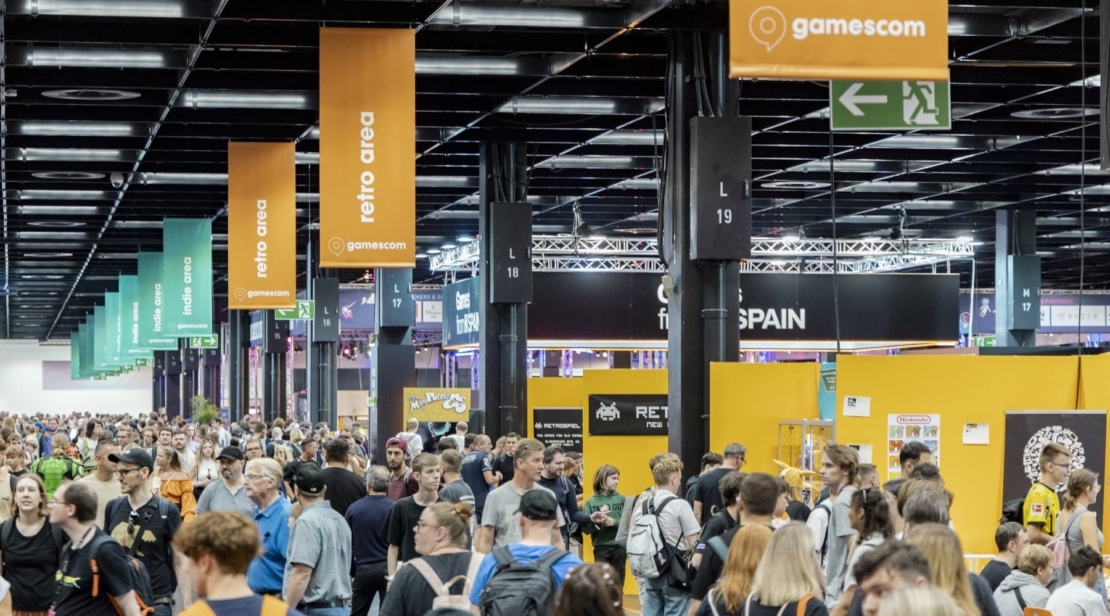
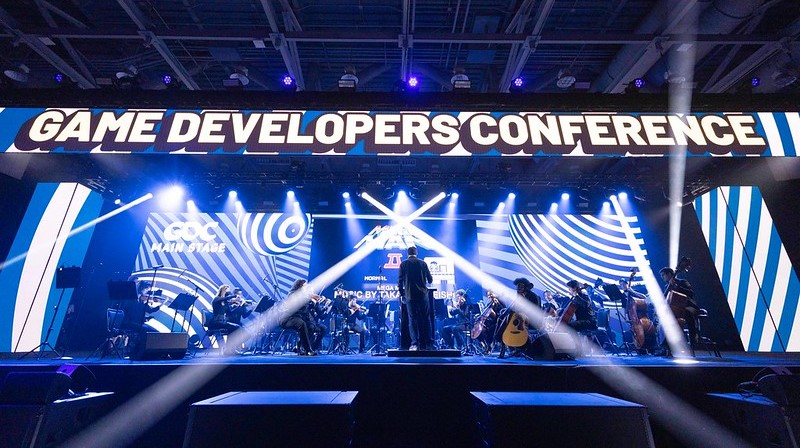

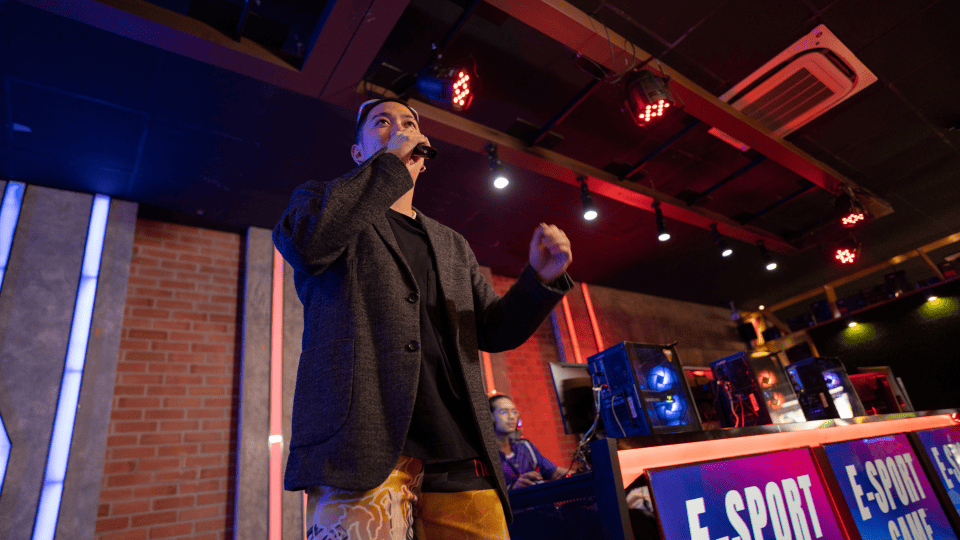

Consumer Events
Consumer events such as PAX or gamescom are aimed primarily at gamers, fans, and other consumers. These events offer demos and live showcases of new and upcoming games from developers, large and small.
Industry & Developer Conferences
Events such as the GDC or devcom are primarily attended by game developers, publishers, industry professionals, and business representatives. They focus on the more technical and professional aspects.
eSports Events
Game developers looking to showcase the competitive elements of their games can do so at eSports events such as the Dota 2 International or the League of Legends World Championship.
💡 Tip: You can find an overview of the biggest gaming conventions and conferences in our blog.
Types of People You’ll Meet


- Game developers: From indie creators to AAA game studios, developers attend to share insights, showcase new projects, and find inspiration or partners for future projects.
- Publishers and investors: Often on the hunt for the next big thing, they’re looking for opportunities to partner, invest, or learn about new talent and trends.
- Content creators and influencers: Streamers, YouTubers, and social media influencers attend to gather content, network with game studios, and even secure sponsorships.
- Marketing and PR professionals: These attendees often focus on branding opportunities and connecting with developers for potential campaigns.
- Gamers and fans: They’re there for the love of gaming, eager to experience previews, interact with developers, and meet others who share their passion.
Why Networking Matters


Career Opportunities
Networking at gaming events can be critical to landing a job or being recruited for a project. The gaming industry is incredibly tight-knit, and while there are specialized job boards like Hitmarker, many industry professionals who are hiring often turn to their networks first for additional team members.
Collaborations and Partnerships
Developers, content creators, and companies can find partnership opportunities such as advertising deals, development collaborations, or influencer sponsorships. Where there are brands, there are often decision makers – many deals are made over a quick chat over a cup of coffee or tea.
Learning and Skill Building
Conventions often host panels, workshops, and talks that allow attendees to gain new insights, learn industry best practices, and stay updated on emerging trends. One of the greatest benefits of this aspect is the number of like-minded participants. Studies have shown that learning and building skills in groups has multiple benefits – what better way to retain what you learn than to discuss it with your peers?
Meeting people in person fosters long-lasting relationships, making it easier to stay connected and collaborate over time. While the days of business cards are slowly coming to an end, it often helps to take the first step toward a new friendship or business relationship with a face-to-face chat!
💡 Tip: If you’re attending your very first gaming event, check out our Gaming Convention Survival Guide!
What is Special about Networking at Gaming Events?
Networking at gaming events has a unique vibe compared to other professional gatherings, combining creative energy, technical collaboration, and a strong sense of community. Here’s what makes it different:
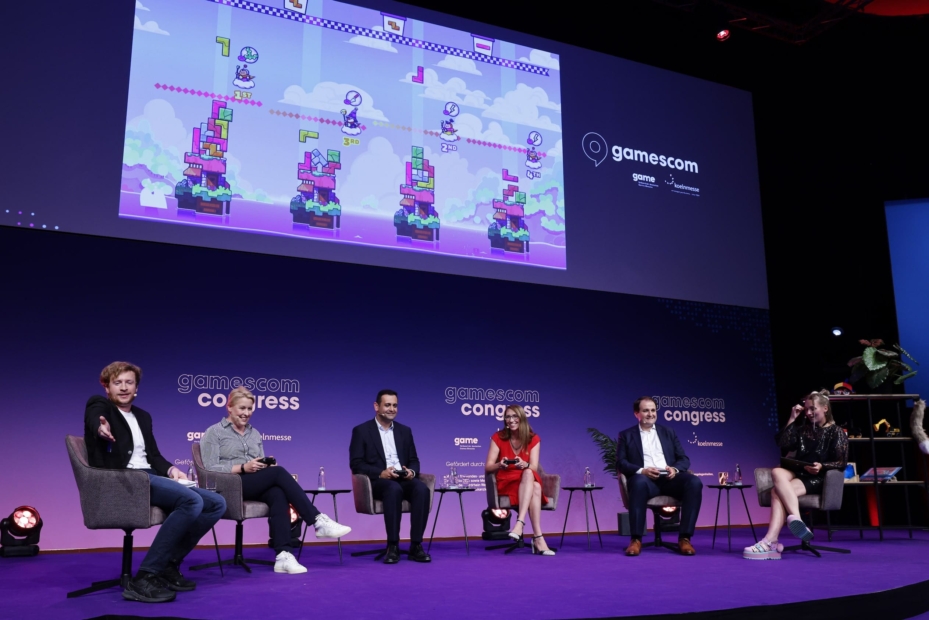

Shared Passion for Gaming
Gaming conferences bring together people who truly love games, whether they’re developers, players, or content creators. This shared passion often transcends professional and personal boundaries, making conversations feel more personal, authentic, and relaxed than the sometimes formal atmosphere of other industry conferences.
Even technical discussions, such as game mechanics or design, are often framed by the excitement of the games themselves, giving networking a distinctly enthusiastic and collaborative energy.
Creative Collaboration and Community Spirit
The gaming industry thrives on creative synergy. At these events, everyone from coders to artists to storytellers is focused on building worlds and experiences. Networking is often more about finding ways to bring creative visions to life together than it is about finding clients or business opportunities.
Gaming conventions foster a sense of community you don’t often see elsewhere. Attendees bond over shared experiences – like playing a favorite game series or watching the same eSports tournaments – which can give networking a fun, almost fan-club feel.
Access to Key Players and Indie Developers
Unlike other conferences where big names can be harder to reach, gaming conventions often provide more opportunities to meet high-profile developers, designers, and even CEOs of gaming companies.
At the same time, the indie scene is strong, allowing attendees to connect with smaller developers and creators who may be breaking new ground. These interactions can lead to collaborations, partnerships, or even investments in up-and-coming projects. One example is the annual Indie Arena booth reception at gamescom, where you can meet the developers of over 160 selected indie games!
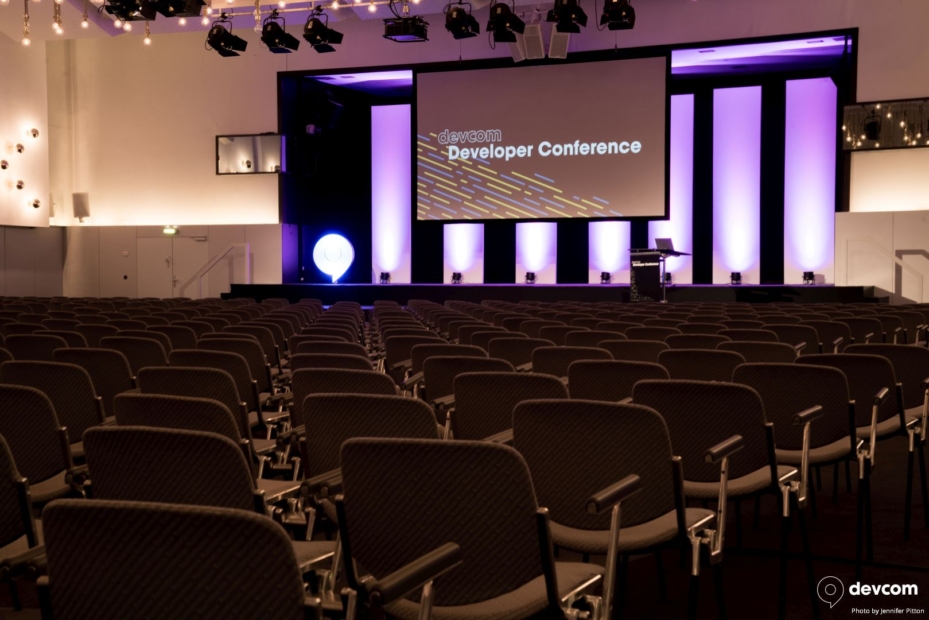



A Tech-Driven, Forward-Thinking Environment
Gaming conferences are often at the forefront of technology, with attendees eager to discuss trends such as virtual reality, artificial intelligence, or advanced graphics. Networking here means staying connected to the future of gaming technology, often long before it hits the consumer market.
This tech-forward focus attracts investors, innovators, and developers looking to share ideas or even launch new projects, making it a prime space for discovering potential breakthroughs.
Influencer and Content Creator Presence
Influencers attending are often eager to connect with developers for exclusive content, sponsorships, or behind-the-scenes access, making these relationships mutually beneficial.
💡 Tip: Check out our packing list to make sure you don’t forget anything important! There’s a special section for conference attendees and a downloadable PDF checklist.
Pro Networking Tips from PLITCH CEO Robert Maroschik
Our CEO, Rob, is definitely a pro at networking at gaming events and has several tips and insights to help you get the hang of it! Some of these are more applicable to specific networking events like dinner parties, but most of them work for entire conventions. Think about the type of event you’re attending and pick the ones that work best for your situation!
Things to Prepare Before the Event
- Know your KPIs by heart in case someone asks! This can include your revenue, number of employees, etc.
- Practice your pitch in three different 30-second versions.
- Update your LinkedIn and bring business cards or a portfolio.
- Analyze the event beforehand and ask yourself: Who will be there, and who do I want to talk to? When should I arrive? What kind of aura do I wish to convey? Why is the event happening, and what do I need to know about it? What news do I need to know?
- If you’re attending something like an evening networking party, have dinner first.
- Do you have a good icebreaker?
- Bring a notebook or your phone to jot down important contacts.
During the Event
First things first
- Watch your posture!
- Look around and take in everything. Pick out the people you want to talk to, and don’t expect others to strike up a conversation with you.
- Smile!
How to Start a Conversation
- If you know someone who knows the person you want to talk to, ask them to introduce you. If they are already engaged in conversation, simply join them.
- If the person is alone, try a simple “hello” and introduce yourself.
- If there’s a group and you don’t know who you want to talk to, walk over and ask if you can join in. No one will say no. Ask what they’re talking about and try to contribute.
Rob’s Special Pro Tip #1: Sneak Your Way In
“If the person you’ve chosen is already deep in conversation, no one can introduce you, and simply joining the group doesn’t work, there’s still a way to join the conversation. I like to position myself within earshot but out of sight.
Then, when I pick up a bit of conversation that I’d like to join, I confidently turn to them and say, “Hi, I heard you talking about [XYZ]; I heard something about this too…” and BOOM, you’re in!”
How to Keep the Conversation Going


- Match the energy and pitch of the person you are talking to.
- It almost doesn’t matter what you say as long as people agree. Avoid “heavy” topics!
- Don’t just say your name or job, but say a few sentences about it.
- Listen more than talk! It’s tempting to keep talking when you’re excited, but be mindful of others’ time. Engage in a two-way conversation to build better connections.
- Get a feel for the type of person you’re talking to.
- Observe your counterpart’s non-verbal communication and adapt your own!
- If you feel the conversation is over, move on or take a break and return later. Give others a chance to engage in conversation.
Rob’s Special Pro Tip #2: How to Beat the Silence
“If the conversation is flowing but you’re running out of topics, you need to fight the awkward silence before or at the moment it occurs. If you feel it coming but can’t think of a topic, return to the last word/sentence/utterance and use it as a question. For example, if someone says, “We painted [XYZ] red,” ask, “Red?” and the person will probably say, “Yes, because…”
This will reassure them that you’re listening and interested. If they continue to talk, you can look for follow-up topics.”
After the Event
- Leave when you’re done (or join the party).
- Take notes! Write a mini report with the most important information. If you collected business cards, you can write on them.
- Follow up with people after the event in order of priority. How intense do you want the contact to be (e.g., business only vs. friendship)?
- Be pleasantly persistent, but remember who you are to the other person and take it easy.
Digital Networking Tips for Introverts
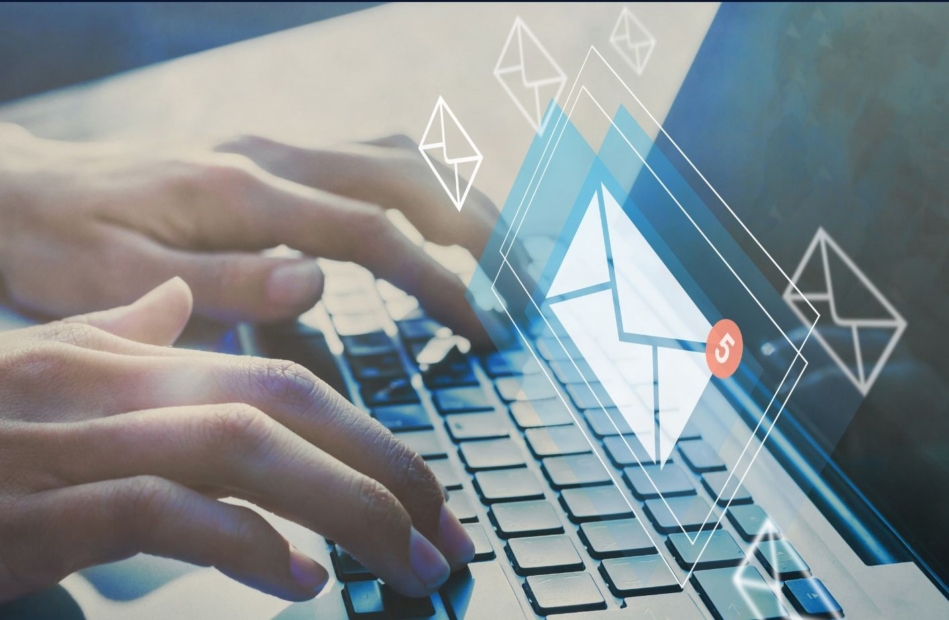

Not everyone is an extrovert and can be successful in face-to-face networking. Introverts often find it difficult to walk up to people and strike up a conversation. That’s why Rob has some tips for digital networking!
- Try not to message people out of the blue, but look at their network to see if someone can introduce you to them. This is particularly important for investors.
- If no one can introduce you, try to find things you have in common that you can use as a conversation starter. Avoid phrases like “You’re also in the gaming industry.”
- Introduce yourself in your first message. Be clear and concise, but don’t sell anything. Be humble.
- Be aware of how much time written communication takes. A phone call is often quicker!
In-Person Networking Tips for Introverts
Often, online networking alone won’t work, and you’ll need to step out of your comfort zone and try networking in person. Here are some tips tailored to help you feel comfortable and confident making connections:
Set Small, Realistic Goals
Instead of aiming to meet as many people as possible, set a goal of making one or two meaningful connections. Think of these interactions as opportunities to learn from others rather than “network,” which can make the process less daunting.
Use Online Tools in Advance
Many conferences have apps or social media groups where attendees can connect before the event. By joining these, you can make initial introductions online so that when you meet in person, there’s already a friendly starting point.
Prepare Icebreakers or Questions
Have a few icebreaker questions or topics that can help start a conversation. Simple ones like, “What games are you most excited about?” or “Have you attended this conference before?” work well and show genuine interest in others’ opinions.


Embrace the One-on-One
One-on-one interactions can feel more comfortable than group conversations. If you hit it off with someone, suggest grabbing a coffee or finding a quiet place to chat. Smaller settings make it easier to build a connection without the noise or pressure of a larger crowd.
Bring a Friend
If possible, attend with a friend or colleague who can help you navigate social situations. Alternatively, team up with someone you meet there who seems approachable – two can feel less intimidating than one, and you can support each other in meeting new people.
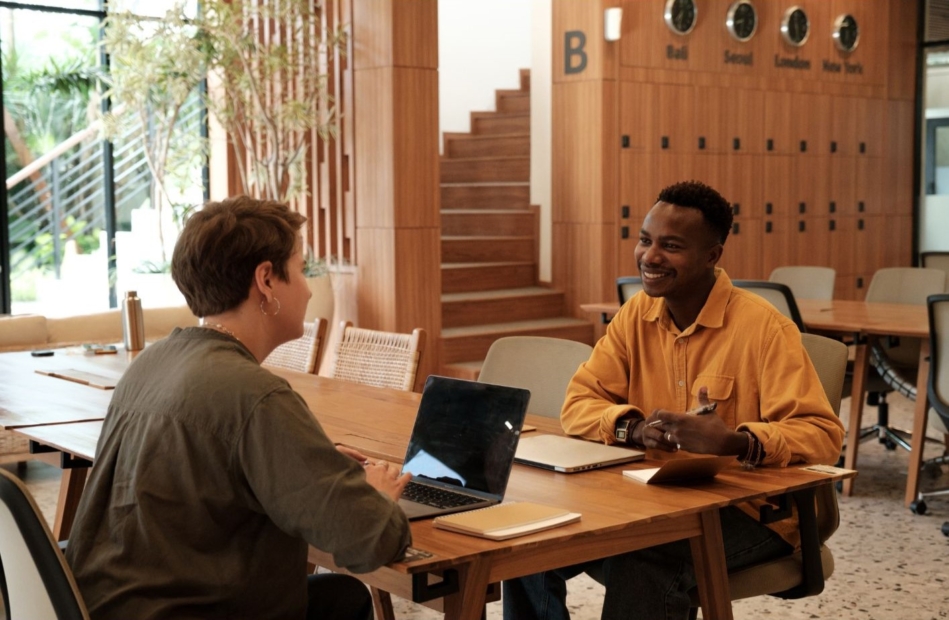

Smaller, Structured Activities
Look for panels, workshops, or smaller Q&A sessions rather than large open-floor events. These structured spaces make connecting with people naturally around common topics easier. Plus, they often have follow-up discussions that are perfect for participating without feeling pressured to lead the conversation.
Use Social Media and Follow Up
When in-person interactions feel stressful, social media can be your best ally. Send LinkedIn requests, follow people on Twitter, or send follow-up emails after a meeting. It’s a low-pressure way to keep the connection alive and revisit the conversation later.
Focus on Listening
Introverts often excel at listening, which is a huge asset in networking. People love to feel heard, so take advantage of this skill. You don’t have to “carry” the conversation; asking questions and responding thoughtfully makes a great impression.


Take Breaks to Recharge
Schedule quiet time between meetings or conversations to avoid burnout. Find a quiet spot or step outside to recharge so you’re ready to re-engage when you feel comfortable.
Be Kind to Yourself
Recognize that stepping out of your comfort zone is a win in itself. You don’t have to force a social marathon; every interaction counts, big or small.
Gaming Center
Gaming center adalah sebuah tempat atau fasilitas yang menyediakan berbagai perangkat dan layanan untuk bermain video game, baik di PC, konsol, maupun mesin arcade. Gaming center ini bisa dikunjungi oleh siapa saja yang ingin bermain game secara individu atau bersama teman-teman. Beberapa gaming center juga sering digunakan sebagai lokasi turnamen game atau esports.
Comments are closed, but trackbacks and pingbacks are open.